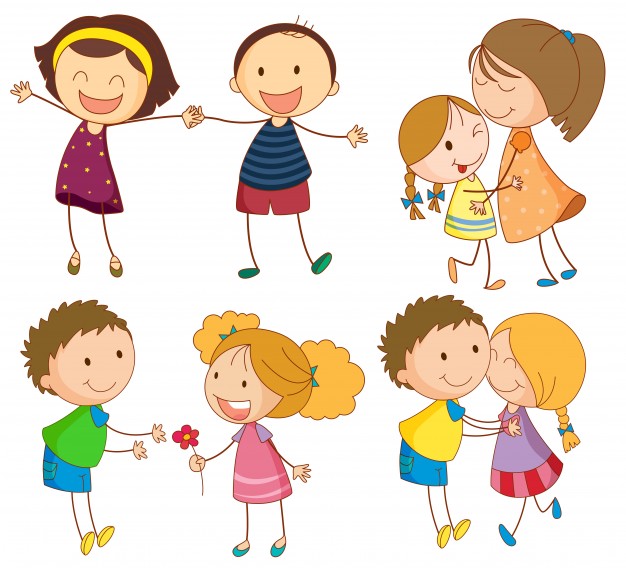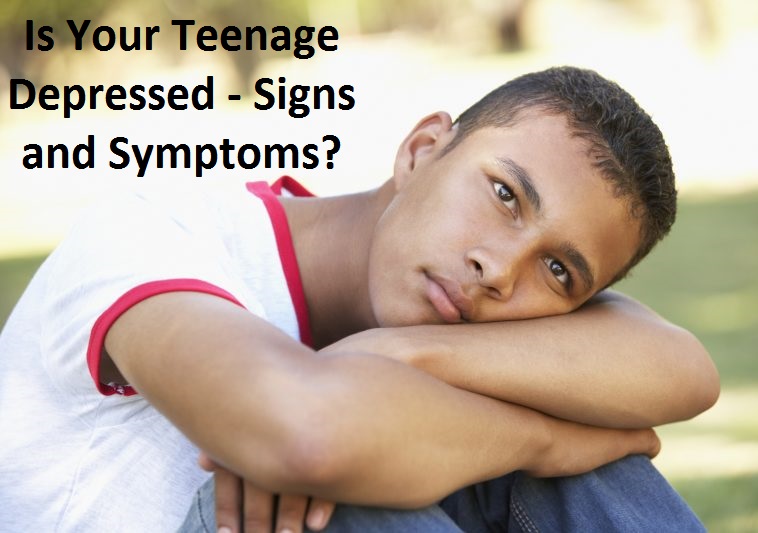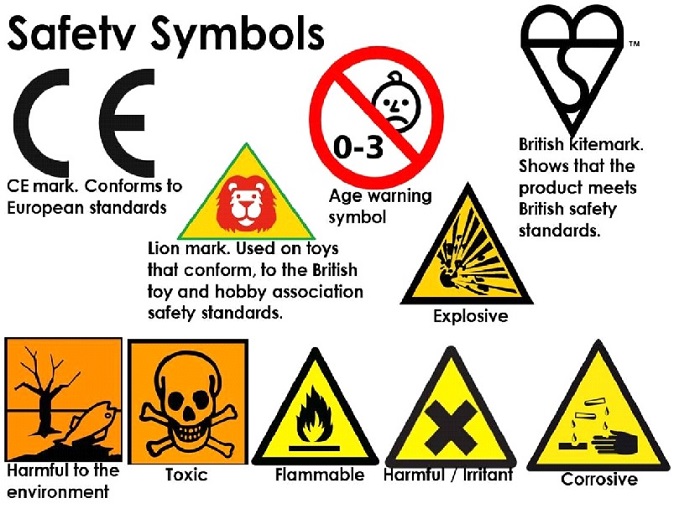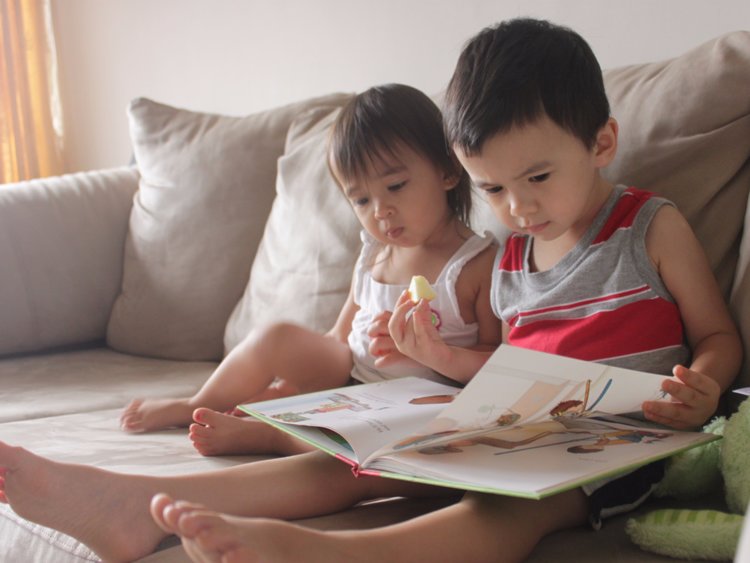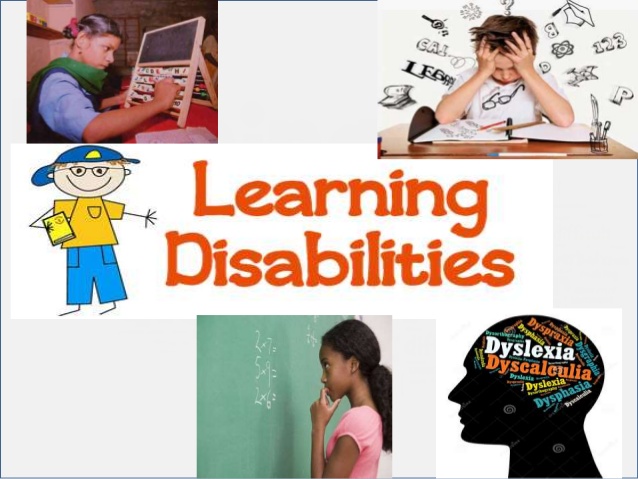-
Recent Posts
Recent Comments
Archives
- February 2020
- January 2020
- December 2019
- November 2019
- October 2019
- September 2019
- August 2019
- July 2019
- June 2019
- May 2019
- April 2019
- March 2019
- February 2019
- January 2019
- December 2018
- November 2018
- October 2018
- September 2018
- August 2018
- July 2018
- June 2018
- May 2018
- April 2018
- March 2018
- February 2018
- January 2018
- December 2017
- November 2017
- July 2017
- April 2017
- March 2017
- September 2015
- June 2015
- March 2015
- February 2015
- September 2014
- March 2014
- October 2013
- September 2013
- March 2013
- January 2013
- November 2012
- August 2012
- July 2012
- June 2012
Categories
Connect with me



Category Archives: school
Raise Kind Kids – 5 Child Rearing Techniques from Harvard
With the changing times, we humans are becoming more and more selfish and self-centred. Inculcating kindness, care and compassion in kids is becoming challenging than ever. Heavy exposure to media and pampering from parents, is turning kids into harsh and stubborn ones. Well, no parent wants their kids to be unkind as kids or as adults.
So, the question arises – is there a way out of all this?
Yes, there is a way out, but, primarily it is the parent who as the first role model for a kid, needs to display kindness, for them to observe and pick it up.
If we go by statistics, a survey of 10000 students in the age group of middle school and high-school in the USA reveals 80% parents teach their children to concentrate on high achievements and personal happiness above kindness and caring. Off-course, the statistics throw light on the current state of mind of teenagers as well. But, the good news is that things can be brought under control. If you want your kids to turn out to be kind and caring as kids as well as adults, here are some techniques coming to your help straight from Harvard.
Be a Role Model – Even if you are not a perfect parent, you can always be a role model for your kids. If you show kindness to others, your kids will automatically inculcate it. So be kind yourself before teaching them to do so.
Practicing is the Key – Nobody is born kind or perfect, right? It’s you as a parent who needs to instill it by way of practice. Try and give opportunities to your kids to practice acts of kindness like sharing their old toys to poor orphans, taking a juniors homework, to name a few.
Feelings Managment – As a parent you need to tell your kids that getting angry, feel anxious or jealous is quite normal in human beings. Further, you need to help them manage these destructive feelings efficiently, based on their individual personalities. If needed you may seek the help of psychologists in school or outside.
Two Vital Skills – The two vital skills that will help your kids build a wider circle of concern are zoom in and zoom out. Zoom in is about concentrating when others are talking viz. listening to them. While zoom out is looking at the bigger picture and learning to put human experience in that context.
Blame Game – Many parents, try finding faults in their kids and are not ready to introspect themselves around what sort of messages are they actually passing on to their kids. It’s a good idea to question your own behavior and ways first, rather than pointing fingers at your child.
It is not a cake walk definitely, to make your kids understand and instill the behavior of kindness in them, but if you try with full zeal it is quite an achievable feat.
Is Your Teenager Depressed – Signs and Symptoms?
A statistical study of teenagers says that one in five teenagers is bound to undergo depression during his/her teenage times. Well, teenage is a time of life when you are at the peak of your youth and a lot of changes are happening within you physically as well as mentally. One issue which most parents face is a sort of disconnect between the child and them. This could be due to the age difference or bonding issues. Sometimes the child looks absolutely normal but the inside story could be very different. The child might be experiencing depression and pain. Hence, it is important for parents to keep a connect with their child and observe the child closely to find out if their child is actually well or not.
How to figure out whether the child is depressed, is a common question for parents. Here are few tips to help you know whether your child is caught in the depression trap.
Self Esteem Issues– Children suffering from depression might experience intense feelings of unworthiness, ugliness, shame, and failure.
Internet/ Phone Addiction – To distract themselves from depression, children may stay online extensively or may be addicted to mobile phone games. But they themselves aren’t aware that in fact, this addiction could further lead to isolation.
Unacceptable Behavior – Children with depression might exhibit reckless behavior like speeding, unsafe sex, excessive drinking, but to name a few.
Issues at School – Depression can lead to issues like poor attendance in school, feeling aloof, frustration with school-related work, drop in grades and more.
Violence – This issue is more rampant in boys suffering from depression. They turn aggressive, violent and self-harm themselves, besides showing disorders around eating.
Here are a few more symptoms that are common among depressed teens -
1. Feeling sad or hopeless
2. Feeling angry, irritated and hostile
3. Frequent crying
4. Poor performance at school
5. Lack of interest, motivation or enthusiasm
6. Fatigue or low on energy
7. Issues with concentration
8. Detachment from family and friends
9. Aches and pain that cannot be explained
10. Suicidal thoughts
Warning around Suicide
- Google search history showing searches around suicide, death, pills and weapons
- Showing reckless and self-harming behavior
- Speaking about death, suicide even if in a jovial way
- Giving away favorite stuff
- Saying goodbye to loved ones
- Writing poems or stories associated to death
As a parent you observe your child for such behaviors and if you feel that the child is showing any of the alarming signs around suicide act immediately.
Toys For Toddlers – Safety and More
Most of the parents, out of love for their kids, buy their kids whatever toy the kids sees and asks for without going into the nitty gritty of it. What I want to convey here is that, many of us do not ensure that the toy is safe for our toddler.
A study carried out by the US Consumer Product Safety Commission made the picture clearer with its startling figures about toy related injuries and deaths in the USA reaching upto a staggaring 240,000. Quite shocking, ain’t it?
Well, the idea is to talk about considering safety of the kids first while buying toys for your toddlers and preschoolers. First and foremost it has to be on mind that it’s a toddler who does have a tendency of mouthing and putting it even in the nose or the ear. So, it’s important to check the size of the toy, the color used and the material as well. The weight of the toy also matters because kids keep throwing toys, and a toy that’s heavy can possibly cause harm.
Here’s a run- down some of the vital points to consider while buying toys for your child
Age appropriate Toys – Toys do have a mention on packs about their suitability to an age group. So, before you buy a toy, do ensure that it is for your toddler’s age.
Be Careful of sharp edges – Toys with sharp edges can be very harmful, so do avoid sharp edges.
Get only Non-toxic ones – Many low-quality toys that you may get very cheap are made of toxic substances and hence it’s advisable to select toys that are made as per international safety standards made for kids.
Magnetic toys – Small toys with detachable magnets is a strict no because they are life threatening in nature. Once swallowed they can cause intestinal blockage and death as well.
Fur toys – Fur toys is also a no for toddlers and even if you buy one ensure that you wash them frequently
Avoid Noisy Toys – Toys that make noise above 100 decibels can be harmful to your kids ears.
Avoid Projectile toys – Projectile toys can be harmful if projected at others and hence it’s better to avoid if you have a naughty toddler at home.
Well, these are only a few of the points to be considered while purchasing toys. Do look for the following safety symbols when choosing toys.
TOY SAFETY SYMBOLS
Well, safety of toddlers is a prime concern and neglecting the same can cost you irreparable damage at times. So, be aware and alert for your kids aren’t.
Vkids is one of the best montessori schools in Bangalore with state of the art facilities. Vydehi school offers the joy of learning through play.
Over Controlling Affects Child Growth Negatively
A study has revealed that over controlling behavior of parents towards their children can affect negatively on their ability to deal with own emotions and behavior. The study brought forth the point about how helicopter parents can hinder the child’s ability to face challenging situations and demands amid years of growing up. These children can have issues dealing with the complex school environment as well.
The researchers studied around 422 children over a period of eight years with assessment at the age of 2, 5 and 10 years of age. The study involved observation and assessment of their emotional as well as social development. During the observation sessions, the researchers asked the parents as well as children to play together like they do at home.
The findings pointed out that parents who were helicopter parenting were guiding their child and instructing them through the play, teaching them how to play with the toy, how to clean after the playtime is over and so on. Some of them were strict and demanding as well. The kids on the other hand reacted in a variety of ways by either showing apathetic attitude, showing frustration or showing a sense of defiance.
The results at various age milestones were different. The result of over- controlling behavior of parents at 2 affected the child’s regulation of emotions and behavior making is adverse by the age of 5 years. Against that, children with good emotional regulation and behavior at 5, showed no issues with emotional regulation and also improved social skills as well as more productivity, by the time kids reached 10. They were also able to manage their impulse in a better way. Children who had mastered the ability to calm down self amid distress situations and to conduct themselves had an easier time adjusting to the difficult demands of the school environment during the preadolescent years.
These results could be of great help to parents because objectives of parents are positive but they are not aware of the hidden consequences, hence if they are made aware of the same it could help them support their kids in the right way. Furthermore, they could use the study to their advantage and help their children learn emotional and behavioral control by understanding them, talking to them one on one and explaining them the consequences around different types of behaviors. They can also help their kids through music, creative activities like drawing and coloring as well as deep breathing that helps the children cope with their emotional distress. Positive coping strategies work really well in child behavioral management.
The parent-teacher association of Vydehi School of Excellence is an active body of the School. Every parent and teacher is a member of the association, as VSE strongly believes that parents and teachers must work together with children to improve the quality of education and life of children.
Tips To Keep Kids Illnesses at Bay This Monsoon
While many of us love the monsoons, because it’s time of the year when the earth is greener, the air cooler and the tongue eager to hog on hot onion fritters, samosas, jalebis and other street foods. But, it’s also a season that brings along viruses and is especially a worrisome period for parents as they struggle to keep their kids away from viral health conditions as well as waterborne ones.
Stagnant water as we all are aware is a breeding ground for vector-borne diseases. Mosquitoes are carriers of many diseases and this stagnant water is their favorite space, be it water coolers, flower vases, wet dirty clothes, to name a few. Hence, its important take some precautionary measures to avoid these viruses from attacking your kids.
Avoid Water Stagnation – Try to keep your vases, planters and water coolers free from stagnant water and replace water on a regular basis. Also, avoid keeping the clothes wet and dirty. As far as possible keep the areas dry thus giving no chance to mosquitoes to breed.
Mosquito Repellent/ Nets – Additionally, applying mosquito repellants to your kids and even using non-toxic repellants at home can further help in keeping the mosquito menace away. It is advisable that you use mosquito nets while sleeping. Mosquito nets work very best in protecting your kids against mosquitos.
Stay Hydrated – Fighting with the invading virus becomes easier when your child is well hydrated. Hydration helps cleanse the system by flushing out the toxins like bacteria and germs from the body.
Eat Hot and Fresh – Eating out is a strict no in rains, particularly street food because there is a high chance of your child getting sick with typhoid or other diseases that occur due to an intake of contaminated food or water. Hence, give your child healthy home cooked food only and filtered water.
Raincoats/ Umbrella’s – Protect your kids from the rain by always keeping a rain suit or umbrella with them and ask them to wear it on during rains. Getting drenched can lead to common cold and many other health conditions. Also, it’s important to wear proper rainy shoes and skip puddles because they are a home for infectious bacteria.
Well, a few puri’s and fritters here and there is not a bad idea but eat stuff that’s made at home and enjoy the monsoons while being safe and sound.
A pre-kindergarten through Grade XII coeducational day school in Whitefield, Bangalore affiliated to the Central Board of Secondary Education (CBSE).
How to Deal Positively with your teenagers Tantrums
One of the most common issues with teenagers, that most of the parents face are their tantrums around cell phone usage on a continuous basis. Dealing with your teenager who is on the cellphone most of the times even at night is certainly a pain in the neck. The larger problem is dealing with the anger issues of teenagers, who tend to get angry on almost everything or every say of their parents.
So, how is that you sail through these years of your child with ease?
Here are a few tips to help you out of this situation possibly.
Be a good role model – If you get angry at everything your child does or deal with their tantrums by whacking them, then, your child is certainly going to emulate you. So, be wise and learn to control yourself in front of your kid. Remember, they are watching you. They might grow up to follow the same kind of behavioral pattern.
Limit your Expectations – When your kid is not behaving well and you are working on changing the same, don’t expect the kid to change overnight. Look for progress not immediate result. Expecting immediate results is unrealistic.
Feelings Management for your Kids – Talk to your kid and make him/ her understand that getting angry is okay and that the only point to be understood is how to deal with it. It’s not that because you are angry you hit someone or throw things around or hurt yourself. It’s about self-regulation and how to handle this situation in a better and respectful manner.
Be clear on Behavior – When you speak to your kid about acceptable behavior be very clear on what you expect and what sort of behavior is not acceptable at all. So, they understand where the line is drawn and avoid crossing it.
Emphasize on Respectful Behavior – You need to keep reminding your kid that respectful behavior is non-negotiable and that they need to keep that in mind all the time.
Talk about it– Communication is the key to any good relationship and hence it’s always advisable that you talk with your kid but choose the time to talk taking into consideration the situation. If the kid is angry or in no mood to listen, you listen to your kid and choose a time after the kid calms down and is ready to listen to you. That will make things easier.
Well, teenage is an age when kids try to go off the track a bit and try to explore unexplored territories. They are young blood after all and this is the age they feel big enough to take decisions on their own.
But, dealing with your kids by getting down on the same page as theirs without letting power struggles come in the way is not as difficult as you think. Be positive, stay calm and you’ll sail safely enough through the breezy ride of your kids teenage.
Happy Parenting!
Reading is the Key to your Child’s Success at School
Every parent wants their child to do well in studies at school. Parents are keen on working with kids for completing their homework and projects within the stipulated deadlines. But, many times even parents get caught up in the race to complete homework, projects and get good marks.
Should homework and projects and studying for clearing exams in flying colors be the only objective of parents, or the concentration needs to be more on something that the child can live with, on something that can help your child throughout the lifetime? So, what is it that your child needs to succeed in life?
The answer to this question lies somewhere in the quote of Einstein. “If you want your children to become intelligent, read fairy tales to them. If you want your children to be more intelligent, read more fairy tales to them.”
Well, it means that reading is one activity which can help transform your child into a successful adult. You need to keep in mind that the first five to six years of life are the most important ones.
Developing an early reading habit in your child can help them in many ways not just academically but socially, neurologically, psychologically and even with linguistics. If you as a parent work with your child and read to them in their early years with expressions, it works wonders. If the child learns to read at an early age, the brain functioning and development is immense. There have been umpteen studies that have proved the importance of learning in brain development. Little ones who are put into reading early on can easily recognize words at sight faster compared to others. Here’s how reading is going to help your child.
Academics – At grass root level when you instill something in your child, it most probably stays forever as it becomes a way of life. Also during these early years, the learning is very fast and it affects academic performance later on.
Social – Reading helps your child become confident and boost up self- esteem because they will be the ones amongst the lot who will be one up against the peers because of their understanding of reading. They could end up receiving awards and recognition as well.
Psychological – A joyful reading experience at home will help a child to become independent and instill a decision-making ability as well as spark imagination and creativity. A child who reads a lot also is able to channelize energy into the right direction, thus increasing self- productivity.
Neurological – A newborn has around 200 billion neurons or active brain cells as they are called. If the child’s brain receives the right stimulation then every brain cell can sprout into 20,000 branches that are interconnected. Hence, if parents are reading, singing or talking to the child regularly, it is obviously going to play a critical role in the development of the brain cells and thus the intellectual capabilities.
Linguistic – The children who start reading early on are obviously good with their vocabulary, oral communication, spellings as well as writing capabilities. They also tend to get better and better with their scholastics. The reading skills also enhance oral communication abilities besides writing.
Well, so a better idea is to ease the pressure of doing homework from your kindergarteners or 1st graders and concentrate more on reading to them as much as possible.
Vydehi School of Excellence in Whitefield is one of the best schools in Bangalore. This particular Bangalore School has state of the art infrastructure besides expert teaching staff with a great track record.
5 Questions you need to ask your Children after they come Home from School
It is very important that as a parent you spend quality as well as the quantity of time with your child. These days most of the parents are working, both of them to be more precise. So, the time available on hand is already quite less and hence it is not an easy task for a parent to find time to speak to the child or kid one on one.
Having said that, you need to know that it is a routine that needs to be kept as a top priority on your work list or checklist once you are home.
Offcourse work is a priority because it helps you buy your bread and butter but investing time in your child is particularly in their early years, (0 -5 years) is an investment worth crores of rupees. When your kids start school, the responsibilities go up. You need to spend time with your kids all the more to bond so well that they share their secrets to an extent with you. Well, if your kid is a teen, expecting to share every secret of theirs is apparently a hypothetical one ![]()
But, even though you are not bonding high time with your children, a good idea is to try and find out what they do in school on an everyday basis, more so if your child is a preschooler. Routine questions like how was your day are okay to ask but you need to go beyond that to find out more. Here’s run-down of five questions that you may ask your preschool kids after they come home from school.
Whom did you sit with today?
This is a question that will help you know about your child’s buddies. This will help you understand what type of kids your child befriends and it even helps you bond well. Children feel bored if you start a conversation around studies, but if it is around playing and their friends they would love to talk. So beginning your conversations with such questions is a good idea to engage them in a conversation. You can even go on asking about their best friends.
What did you learn at school today?
This question helps you to get a general idea of what the teacher has taught at school. You can even frame your question based on what your child does at home. For example, if you find your child singing rhymes you might as well ask him or her if the rhyme he or she was singing, was taught at school. You need not use the exact question stated above.
What did you eat for breakfast/lunch? (If the school offers breakfast and/or meals)
If your child has his or her meal, be it breakfast or lunch at school then always take time to find out what the child eats, more so how much he or she eats and if he/she likes what she eats. This can be done by asking your child questions about the food they had at school and if they liked it or not as well as how much they ate. Cross verifying the same with the teacher is required though because sometimes kids may lie.
What are the rules your class teacher talks about?
This question is a bit tricky one but still can get your child telling about the rules and regulations at school. You can also figure out if he/she really gels with the teacher or not through the way he or she answers the question. Even the expressions can help you out.
Anything funny or laughable happened at school today?
Again closing the conversation with light-hearted questions leaves a good aftertaste. So, ask your child to share some light moments that took place at school and make the child recall happy moments at school.
Talking is really important, to develop a bond with your child. So find time for your child and see how your little flower blooms with your presence around.
The Need to Teach your Child to Code in India
There were times when computers had just made an entry in a common man’s world and were extremely slow and without much of storage facility. Switch to present times and you have a computer in your pocket that is umpteen times faster than the earlier ones and with super storage capabilities, to name a few. Today, you’ll find a software for solving most of your issues and problems. This implies that we are already living in the world that is dominated by software. Such is the scenario today, imagine what’s the future going to be like?
Obviously, it’s going northwards when it comes to online or digital. Just like in the older times, we communicated using various different languages, today we communicate using software. Hence, it is critical that we teach our children the language of communication of today viz. coding.
 Even though there has been such a mammoth rise in the computing world, somewhere India has ignored this growth by not including coding languages in school curriculums at an early level. It’s not that coding is something not suitable for the kids but apparently, anyone in the world can easily learn the basic skills with simple tutorials. In no time you can be ready to make your own programs and applications.
Even though there has been such a mammoth rise in the computing world, somewhere India has ignored this growth by not including coding languages in school curriculums at an early level. It’s not that coding is something not suitable for the kids but apparently, anyone in the world can easily learn the basic skills with simple tutorials. In no time you can be ready to make your own programs and applications.
Many countries are looking into this avenue and one such country that has understood the importance of coding is Britain. It has set up organizations like Code Academy, Code Club, and Young Rewired Stage to name a few, thus helping youngsters learn coding skills.
Well, you might be wondering: is learning code, like, need of the hour because it is a crucial skill that can get you jobs in the future easily? Not that its only about getting jobs but its more about honing your ability of problem-solving and learning a new way to think. Plus, you can learn to resolve complex issues by breaking them into smaller resolvable ones. It is about computational thinking and its benefits not just in a work area but your routine life as well.
Coding has not only caught the attention of foreign countries, many in India have also felt the need to teach their children coding and one example is Tanmay Bakshi, the little one aged only 12 who has addressed IBM’s biggest ever developer meet in Bengaluru attended by over 10,000 coders. The good news is he is not the only one, India is witnessing a pool of super coders rising and in the age groups of as young as 8 -17 years. This has also motivated biggies like Microsoft, Apple and IBM go trotting for child coders.
Perhaps, the time to teach our children how to code is now and the process has already begun. It’s time that parents also take a keen interest in teaching children computational languages and making them ready for the future.
Learning Disability and Parenting
It’s not easy for a parent to accept the fact that their child has learning disability. For those who are not aware what apparently learning disability is, it’s a neurological problem of processing that interferes with basic learning skills like calculations, reading or writing. Sometimes, it can also interfere with higher skills that include time planning, abstract reasoning or organization and more. The earlier it is detected and worked upon the better because learning disability does not only affect the academics but moving beyond, it also impacts personal relationships be it friends, family or workplace. Many of you parents, may worry that your child might be labelled as slow and might as well experience low self- esteem. But, apparently, the need of the hour is to meet up with a psychologist or a neurological pediatrician for assessment and work on the remedial approach to the disability. As a parent of a kid with learning disability you need to understand that your child has an above average intelligence and is just as smart as any other kid, but only needs a little bit of outside help to make optimum use of his or her potential.
Furthermore, there is a difference between learning disability and learning problem or issues. While learning problem is due to factors like motor handicaps, emotional disturbance, or visual handicap to name a few, learning disability is about the gap between a child’s potential and actual achievement against it. It is not easy for a parent to find out whether the child has symptoms of learning disability or not because the child looks as normal as any other child, only that the child is not at par with a peer of his or her age as far as skill development is concerned.
Here’s run down some of the specific learning disabilities found in children –
1. Dyslexia – This is a learning disability that affects the reading skills besides the language based processing skills associated with it and hence it is also referred to as language based learning disability. Though the severity of the disability varies from child to child it affects common skill sets like reading, recalling, writing, decoding and sometimes even speech alongside other disorders.
2. Dyscalculia – This specific learning disability is associated with understanding numericals and includes disorders like memorizing and organizing numbers, telling the time, counting trouble, poor comprehension of maths symbols, to name a few.
3. Auditory Processing Disorder – This disability is associated with how the sound that commutes through the ear or how it is interpreted by the brain. A child with this ability does have difficulty processing sounds, recognizing subtle difference between sounds in words even if the sound is loud and clear. The have difficulty understanding from where these sounds are coming in order to block out competing sounds or understand their order.
4. Dysgraphia – This disorder is responsible for affecting the fine motor skills and handwriting ability of a child. The child may experience issues with illegible handwriting, poor spelling and spatial planning, improper spacing and issues while writing as well as with thinking and writing simultaneously.
5. Visual Perceptual/ Visual Motor Deficit – This disorders affects the ability to draw, copy or ability to understand the information that a child views. The disabilities associated with it include poor hand eye coordination, holding pencil too tight, struggle cutting, missing out on differences in printed letters or shapes, to name a few.
6. Non Verbal Learning Disabilities – An individual having NLD or NVLD shows significant disparity between social skills and visual spatial skills besides trouble with interpretation of body language, facial expressions, nonverbal cues as well as poor coordination.
So, if you find your child is exhibiting similar symptoms and you suspect that your child might have learning disability, evaluate your child’s symptoms and on confirmation you may work upon the gaps that are assessed in comparison to the peer group. The special educator usually is the one with whom you can work out a plan that involves activities and actions for making the child independent and move ahead in learning by bypassing the disability or by overcoming it.
Know more about vydehi School of excellence

